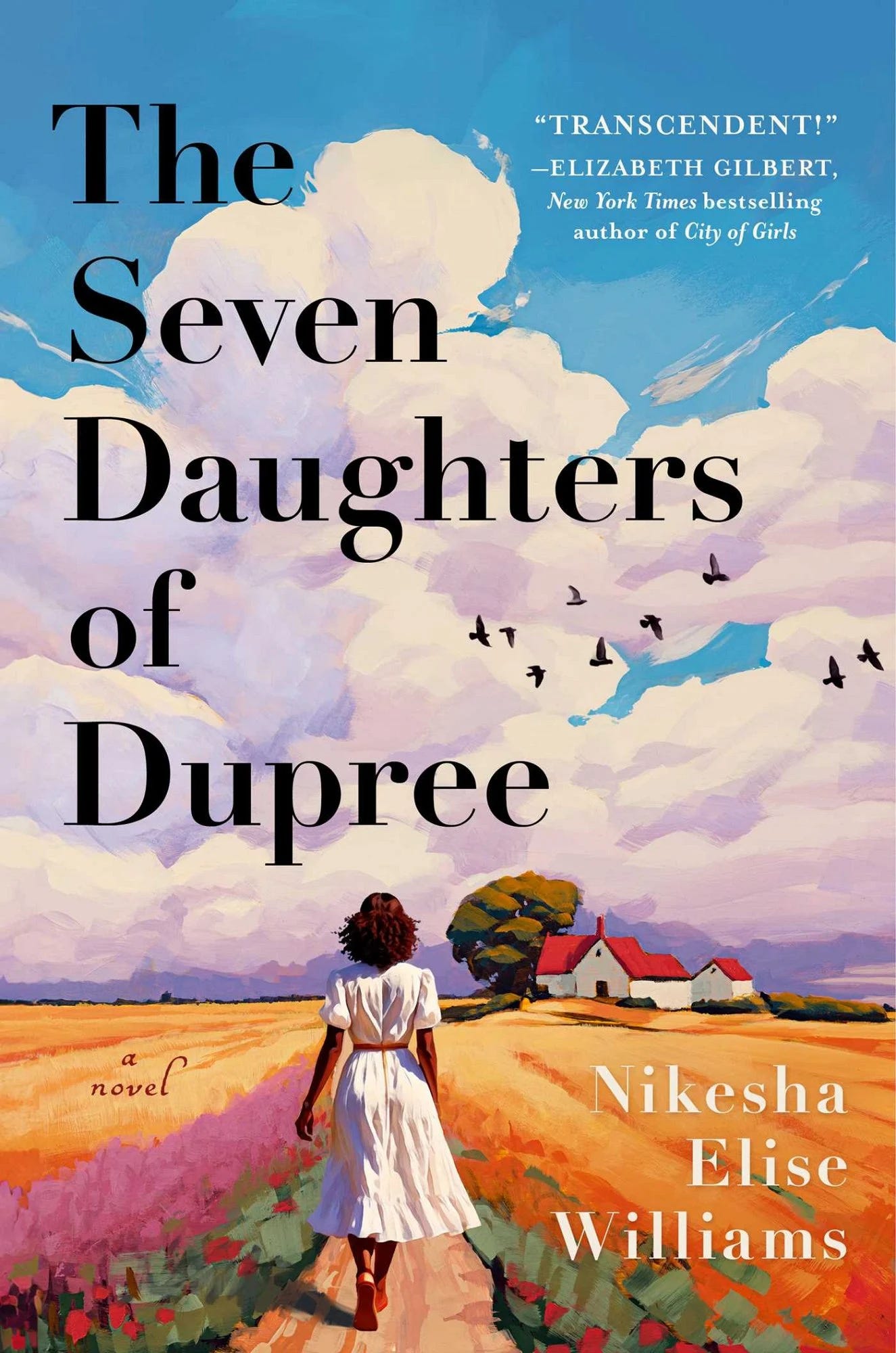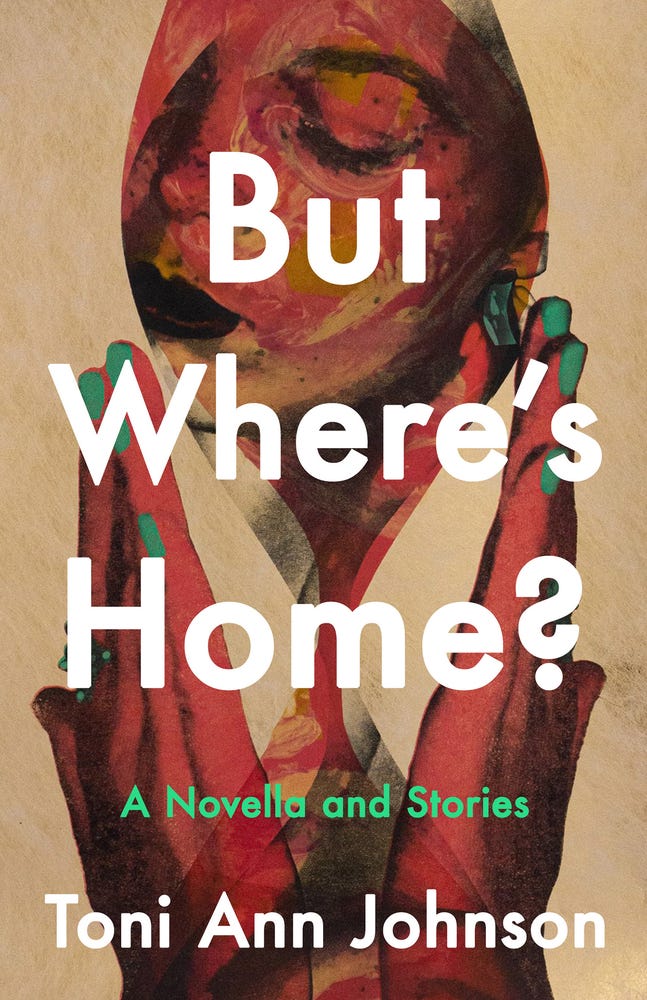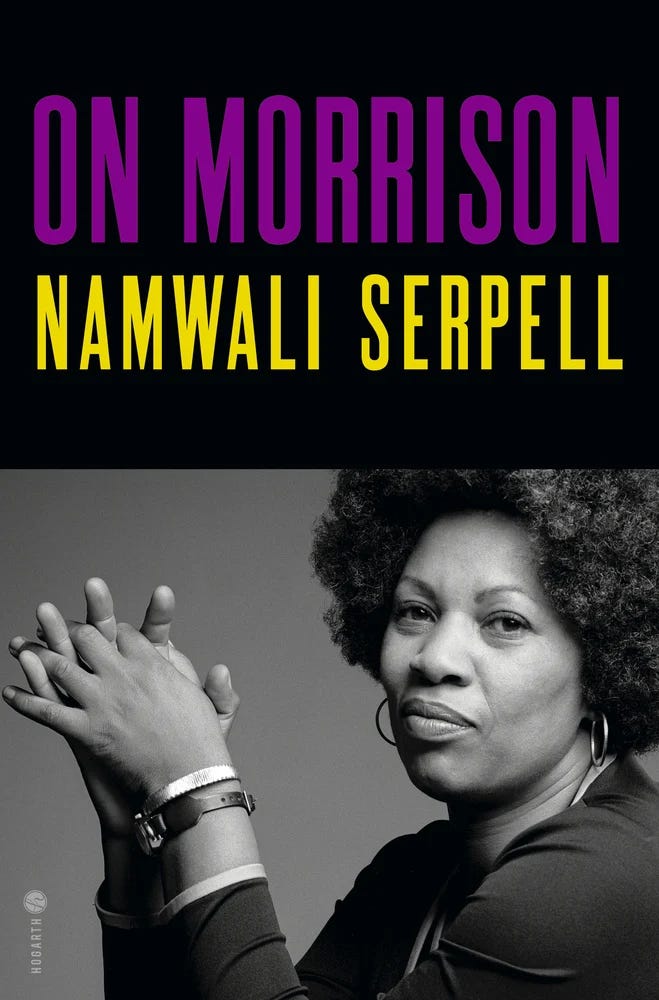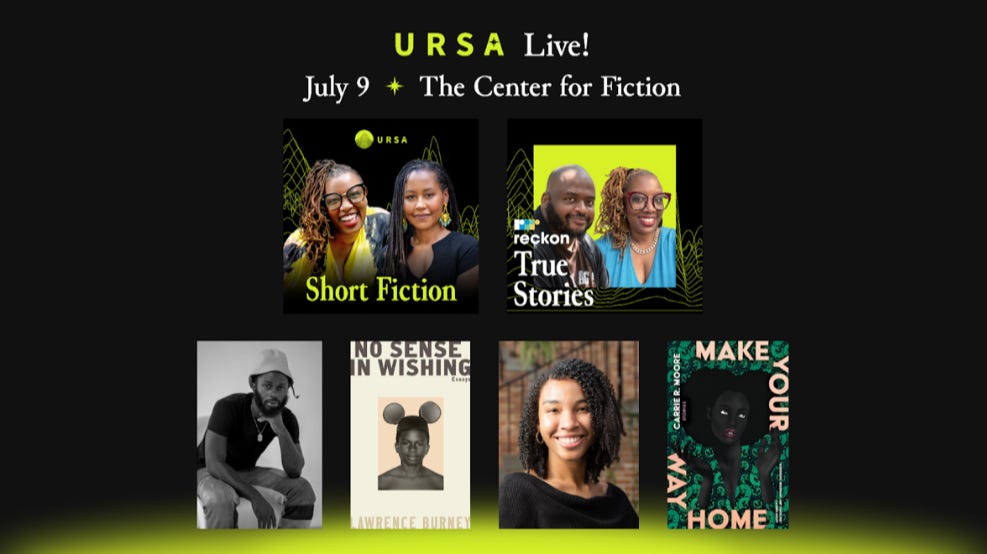The AI Issue
Plus: Fave news & views, a look back at the Black Arts Movement, plenty o' reading recs, and more
WELCOME to all my new subscribers!
THANK YOU to all my subscribers, with special thanks to my paid subscribers and to everyone who has recommended this newsletter, restacked my posts, or sent gift subscriptions!
As always, the writerly resources in this newsletter are free. Behind the paywall, as a paid subscriber, you’ll find my professional, personal, and pop culture hot takes, adventures, obsessions, and news.
All subscription proceeds go to Roots Wounds Words, Bronx Defenders, Freedom Reads, and National Bail Out.
Want a complimentary paid subscription to access content behind the paywall? Message me here in Substack.
In the spring of last year, I matched with a woman on a dating app; we’ll call her G. G was an aspiring writer, and she loved to read; one of her hobbies was creating images of Black women in formal settings reading books, surrounded by books, delighting in books. The women were often dark brown-skinned and curvy. I complimented G on the images, despite knowing that they were generated by AI.
While I’ve admittedly been a bit late to the party in terms of awareness of the myriad of problems and harms associated with AI, to be clear, I have always and will continue to avoid using AI. I’m employing every trick I can find to keep those summaries from popping up automatically in my Google searches. Even before learning about the aforementioned problems, I had zero interest in AI “helping” me write an email, and certainly not a book (aka plagiarism). And I don’t pass along those AI-generated memes and videos of Black babies talking like adults or Black elders talking raunchy about sex.
But as recently as last year, I still hadn’t connected all the dots when G shared her portfolio of AI-generated bookish babe images with me. I praised her “work,” and we continued getting to know one another. At the time, I was finishing the draft of my novel manuscript. One day, a few weeks into our getting-to-know-you calls and texts (we live in different states), G asked me if I planned to run my manuscript through an app to “check for formatting, etc.” before submitting it to my editor.
Formatting? I asked G to elaborate. Eventually, I was able to figure out that she assumed I drafted somewhere other than Google Docs or Microsoft Word (Notes app???) and would need to then cut and paste my manuscript into an app to “format” it. As an example, she sent me a screenshot of the landing page for a service that “uses AI to create polished book drafts crafted to your specifications,” and describes itself as “a co-author, researcher, proof-reader, and editor, all in one.”
(Full disclosure: I have friends who use AI personally and professionally; to my knowledge, none of them use it for any aspect of writing poems, essays, stories, books, or otherwise making art.)
I replied to G saying that the company she shared did way more than formatting, that no writer needs AI, and that use of it in their artistic works, without disclosure, is unethical. I also noted that part of the reason screenwriters went on strike in 2023 is because use of AI threatens our livelihoods. G said she would never use AI for her writing. And I left it at that.
But the next day, I did send the “hey, I’m not feeling a connection” text…and that was true. It wasn’t just about the AI. And at the time, I didn’t see any connection between my exchange with G about AI and my interactions with another woman—we’ll call her K—I’d matched with on a dating app the previous fall. As with G, K and I lived in different states; I was living in Oakland, California, at the time. K and I spent about two weeks texting and talking on the phone, and we had one Zoom call. K, a therapist, was kind of a love-bomber, and there were red flags at the outset. I dodged the love bombs and tried to set a getting-to-know-you pace that was comfortable for me.
But I was never fully comfortable. Not with the way-too-soon love song K sent me, not with the brightly-colored gifs she sent to wish me a good day or a good night. Not with the stiff, Hallmark-esque text messages K sent to wish me a good day or a good night or to compliment me. At one point, I joked to a friend that K texted like a robot. Based on our phone and Zoom calls, I was sure she wasn’t a bot or a catfish. Those conversations flowed without any suspicious delays, camera tricks, or greeting card lingo.
One Sunday, I went to a party at a nearby vineyard. I texted with K a bit during the party, and when the DJ switched from classic R&B cookout staples to Too Short’s “Blow the Whistle” (a song I heard almost every time I stepped outside when I lived in Oakland), I texted K: “We are at the ‘Blow the Whistle’ portion of the evening lol.” K replied, asking if I was a referring to the “fun part” of the party. “I have not heard of this term,” she added with the shruggy emotion. I thought that was odd, especially given her race (Black), age (Gen X), and the fact that she’d previously lived in the Bay for over a decade. And then I went back to partying.
The next time I checked my phone, there was this message from K: “I hope you are having fun! I just googled ‘Blow the Whistle,’ and I am seeing a couple of different interpretations. Most importantly, I am rooting for you; fun-wise and safety-wise.”
Girl, what?
Before the night was over, I replied, explaining that “Blow the Whistle” is a ratchet song by Too Short who hails from Oakland. Though I did eventually let K know that I wasn’t feeling a connection between us, the Too Short exchange wasn’t the nail in the coffin of our getting-to-know-you. I told the story of that exchange to my friends for laughs; how funny it was that she didn’t know “Blow the Whistle” and texted like a bot about it.
Nearly two years later, I no longer thinks it’s funny. I think that, more than likely, K used ChatGPT or something similar to text me. Maybe not all the time, but definitely some of the time.
I’m embarrassed now about my ignorance and my naïveté’—my failure to recognize K’s use of AI for what it was; my failure to recognize G’s use of AI to create images as being a party to copyright infringement and other violations; but worse, my lack of awareness of how widespread use of AI is, about AI’s harms, and how those harms are compounded in the most economically and environmentally vulnerable communities. So for the past two newsletters, I’ve been meaning to write about AI, to share some relevant articles I’ve read recently, including this one about predators using generative AI to generate explicit images of children, and this one about the enormous amounts of energy AI consumes.
Threads, the social media platform I’m most active on, is where I learned just how common AI usage is and how detrimental it is. Threads is a hotbed of discussion about AI, especially given the number of authors there who proudly admit they write their books using AI or unapologetically use AI-generated book covers. If you’re not familiar with Threads, it’s attached to your Instagram account, so engaging there is easy.
I hesitated to write about G and K, wondering whether they might read this, and if they might feel hurt, betrayed, or insulted. But then I asked myself if I would have the same hesitation writing about two people who turned out to have plagiarized their novels. Is it that cut and dry? I think so. Of course, using ChatGPT to text someone you met on a dating app isn’t the same as plagiarizing a novel. What is the same is my discomfort with both. I’m leaning into this discomfort by educating myself and joining the fight for artists’ rights and protections.
More on the moral, ethical, and environmental shitshow that is AI:
“But the end is the same: super intelligence demands super concentrations of capital, the same captains of industry deepening their planet-sized pockets while simultaneously issuing layoff after layoff, resegregating workplaces, and threatening the livelihood of workers everywhere.”
“It's eating up clean water in Memphis and churning out unbreathable air into a primarily Black community (and that's just ONE of these fucking things).”
“A small but growing community of Black coders and tech leaders are working to create programs to protect and inform marginalized groups about how sharing data is being used: in algorithmic biases, misinformation, and the ability to predict locations and potentially share it with law enforcement.” - Capital B
“An individual can educate themselves, recognize the ethical issues, and realize that it's not just affecting artists but potentially anyone whose work is digitized.” - “Artist And Activist Karla Ortiz On The Battle To Preserve Humanity In Art”
It’s worth the time:
Did you hear the one about the AI model that tried to blackmail the engineers who threatened to take it offline?
“ChatGPT May Be Eroding Critical Thinking Skills, According to a New MIT Study”
AI use is contributing to cognitive decline and more:
“What has happened, I think—and I would like to place blame somewhere, but I shift so often—is that writing has become almost a celebrity thing in the sense that people don't want to write; they want to be authors. And that's quite different.” — Toni Morrison (emphasis mine)
“Before ChatGPT distorted Eugene Torres’s sense of reality and almost killed him, he said, the artificial intelligence chatbot had been a helpful, timesaving tool.”
News & Views from Friends & Faves
My friend Lonnae O’Neal has embarked on a tour for her brilliant book Bibb Country: Unearthing My Family Secrets of Land, Legacy—and Lettuce. Next stop: Bowie, Maryland.
My friend, the award-winning poet Karisma Price, has published her very first short story, and it’s fantastic! Karisma’s debut poetry collection, “I’m Always So Serious,” is also fire:
Congratulations to Vic Collins! Vic writes: “Last month, I graduated with a Master of Theology and Ecology from Princeton Theological Seminary. When I tell people this, most respond with ‘Hmm, I’ve never thought about those two things together…’ or ‘wow, that’s so niche.’ My cohort and I loathe the latter comment: ‘niche.’ Because if one thinks that Theology and Ecology is ‘niche’ it tells me that that person has been so indoctrinated in ‘the real world’ that they ain’t been paying attention to what’s right in front of them this whole time.”
Read the rest here in Vic’s excellent Substack, Patterns + Abnormalities, “a black feminist newsletter, written from the perspective of a Black, queer, trans nonbinary, working-class dyke from the South.”
My friend Erika Alexander is fundraising for a new project, The Ones We Carry,” “to shed light on the silent battles of mental health, foster empathy, and inspire hope by portraying a journey from despair to resilience.” Please join me in making a donation.
Array, Ava DuVernay’s collective, is hiring!
Resist
Samaria Rice, Tamir Rice’s mother, is raising funds for an youth arts and culture development center, in honor of his legacy and memory.
A critical victory in the fight against book banning and censorship nationwide
Pre-order time!
No new pre-orders this week. But here are the ones from last week. Pre-orders are critical to a book’s success, especially for debut authors.
“In The Seven Daughters of Dupree, mothers are mysteries for daughters to unfold, ancestral spirits entangle grieving hearts among the living, and––as always with Black folks––our hair, our land, and our blood embody whole worlds beneath the surface. Nikesha Elise Williams conjures the worlds of the Dupree women with powerful, lyrical prose, and a deep, deep knowing about Black women’s resilience and intimacies, from Africa to Alabama. This gripping intergenerational saga is haunting, heartbreaking, and utterly unforgettable.” - me'
But Where’s Home? by Toni Ann Johnson
On Morrison by Namwali Serpell
The Book of Alice by Diamond Forde
Clothes to Make You Smile: Patrick Kelly Designs His Dreams by Dr. Eric Darnell Pritchard/illustrated by Shannon Wright
Black Women on the Perils and Promises of Friendship with White Women edited by Patrice Gopo
Martha’s Daughter: A Novella and Stories by David Haynes, founder of Kimbilio
Under the Neon Lights by Arriel Vinson
HotShot: A Life on Fire by River Selby
Resting Bitch Face by Taylor Byas
Fearless, Sleepless, Deathless: What Fungi Taught Me about Nourishment, Poison, Ecology, Hidden Histories, Zombies, and Black Survival by Maria Pinto
Writing
Writers on Writing
“Nothing destroys creativity so mercilessly as doubt. Nothing powers your creativity so much as belief.” Read more from Grant Faulkner on “The Biggest Question of All”
Pride All Year Long
“The LGBTQ+ Heritage Alliance is proud to administer the first nationwide grant program dedicated to places related to LGBTQ+ culture and heritage. This initiative will help researchers, historians, and anyone else with an interest in preserving LGBTQ+ culture fill gaps in the historical narrative and allow teaching the full and complex history of the United States.”
Wondering
“A look back at what [the Black Arts Movement] gained in turning Black cultural and scholarly institutions into wellsprings for Black political action explains why the Trump administration sees Black culture as an enemy. It also reveals what Americans got wrong by emphasizing the soft politics of representation and inclusion while shortchanging the capability of Black artistry to dethrone the great myth of white superiority. At the height of one of the most violent eras of the 20th century, BAM organizers set their sights on Black liberation, not conciliation. As a result, BAM’s blueprint for Black power reoriented institutions and organizations and persists half a century later. Our stakes today are just as high, but in reducing Black culture into diversity and inclusion efforts we’re playing directly into a game where Trump can expunge these politically inconsequential gains as soon as they are made.” - Saida Grundy in “Trump is terrified of Black culture. But not for the reasons you think,” in The Guardian
“What I’ve noticed in the past five years is that the potency of bespoke Black stories is wearing off. Titles made by Black people to intentionally showcase the intricacies of the Black American experience — from frivolous joy to our deepest cultural fears — have been replaced by diverse casting.” - Sesali Bowen on why “One of Them Days” starring SZA and Keke Palmer marks the end of an era for Black Hollywood
I was hoping someone was cataloguing these atrocities, and in a world where Teen Vogue is a more reputable and reliable news source than CNN, NYT, and WaPo combined, of course it’s McSweeneys.
Wandering
Ursa LIVE!
I have the pleasure of co-hosting two podcasts, each with a dear friend––Dawnie Walton (Ursa Short Fiction) and Kiese Laymon (Reckon True Stories). And we’re all coming together for a special live event at The Center for Fiction on July 9! We’ll be joined by special guests, authors Carrie R. Moore and Lawrence Burney, for an evening full of reading, laughs, and bookish fun. Tickets are available here. Can’t make it to Brooklyn? Choose the livestream option on the registration page.
Submit
I’m excited to once again be judging the Sante Fe Writers Project Literary Award. Deadline to submit is September 15.
This is my first time judging Cream City Review’s Summer Fiction Prize: Deadline: August 1
Keep reading (or become a paid subscriber to do so) to find out the fastest-growing Christian group in the U.S., the double standards of Black and white genius, and more.
Writing, Wandering, Wondering is a reader-supported publication. To receive full access to all posts, consider becoming a paid subscriber. All proceeds go to Roots Wounds Words, Bronx Defenders, Freedom Reads, and National Bail Out.

















